Publications
Articles, publications, books, tools and multimedia features from the U.S. Institute of Peace provide the latest news, analysis, research findings, practitioner guides and reports, all related to the conflict zones and issues that are at the center of the Institute’s work to prevent and reduce violent conflict.
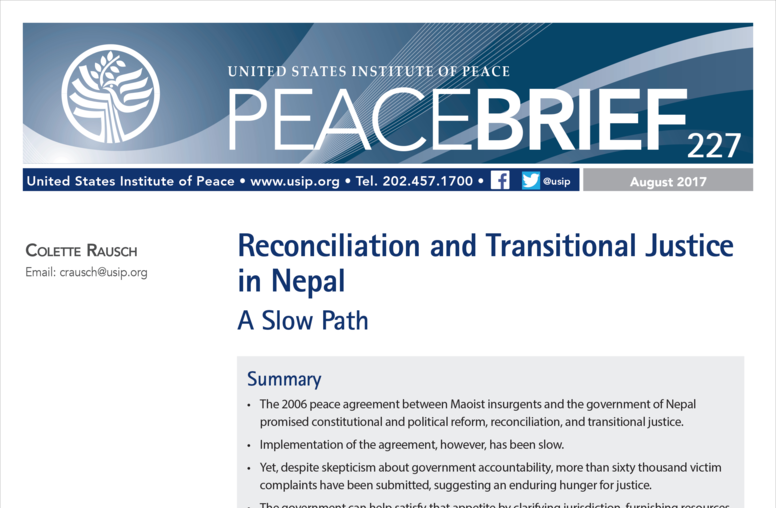
Reconciliation and Transitional Justice in Nepal: A Slow Path
In 2006, the government of Nepal and Maoist insurgents brokered the end of a ten-year civil war that had killed thousands and displaced hundreds of thousands. The ensuing Comprehensive Peace Agreement laid out a path to peace and ushered in a coalition government. Nepal’s people were eager to see the fighting end. Their political leaders, however...
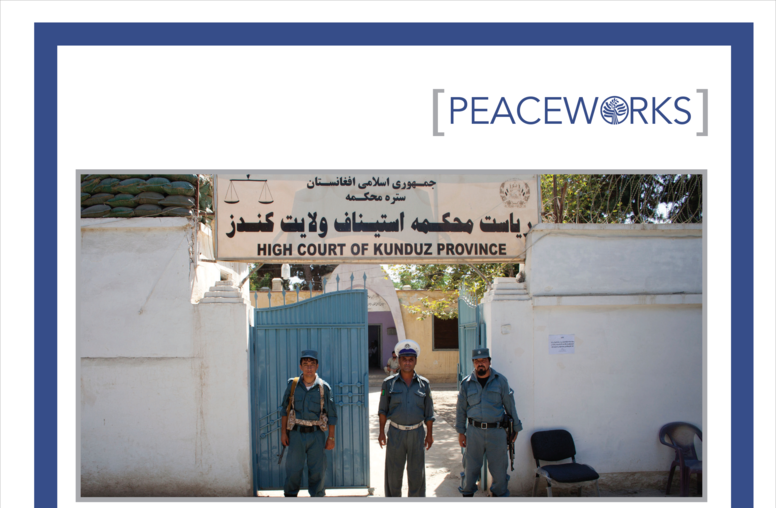
Rule of Law, Governance, and Human Rights in Afghanistan, 2002 to 2016
In the wake of the 2001 invasion, Afghanistan is a cautionary tale about underfunded, underplanned, and undercoordinated development agendas. Derived from extensive fieldwork, numerous interviews, and desk research into primary and secondary sources, this report examines the successes and failures in Afghan reconstruction over fifteen years to suggest ways to consolidate gains in rule of law, human rights, and good governance over the long term.
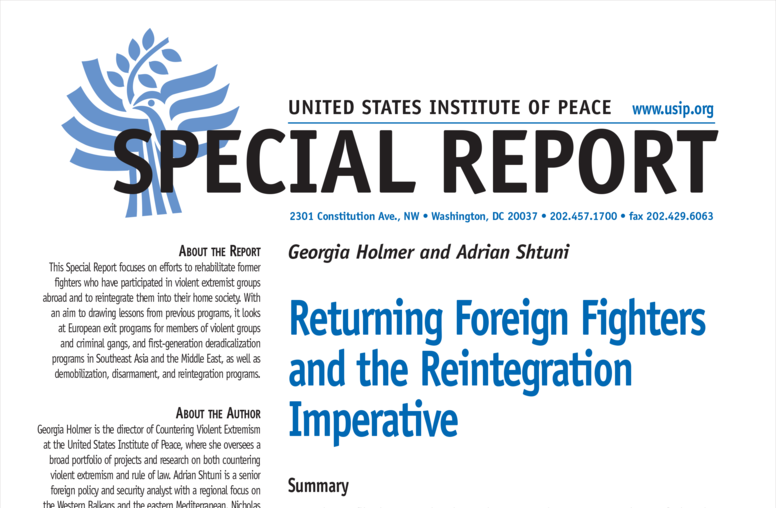
Returning Foreign Fighters and the Reintegration Imperative
This report aims to help policymakers and practitioners navigate the challenges of developing effective programs to rehabilitate and reintegrate foreign fighters returning from Syria and Iraq into their societies. Ultimately, holistic and comprehensive reintegration efforts designed to transition returnees address not only their needs, but also those of the entire society, and are critical in building more resilient and safer communities.
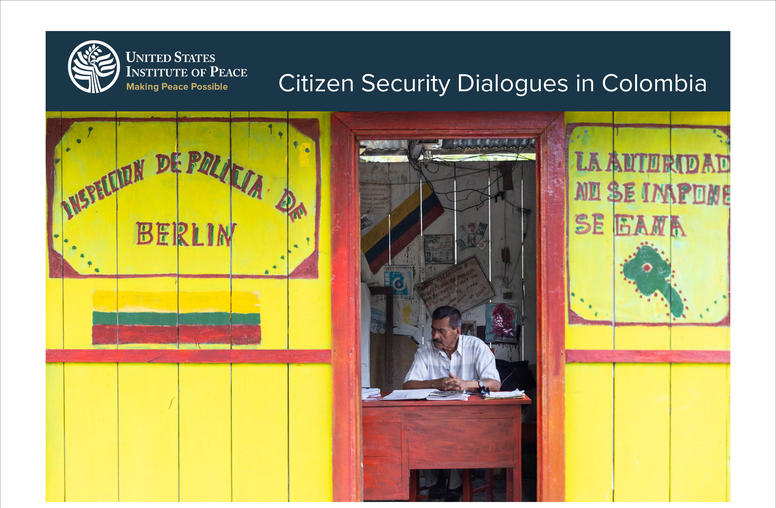
Citizen Security Dialogues in Colombia
The signing of the 2016 peace agreement between the Colombian government and the FARC-EP opened new windows of opportunity to transform security paradigms that better respond to the needs and priorities of citizens. However, implementing the Agreement and ensuring that its provisions are equitably implemented in rural areas of the territory remains an elusive challenge.
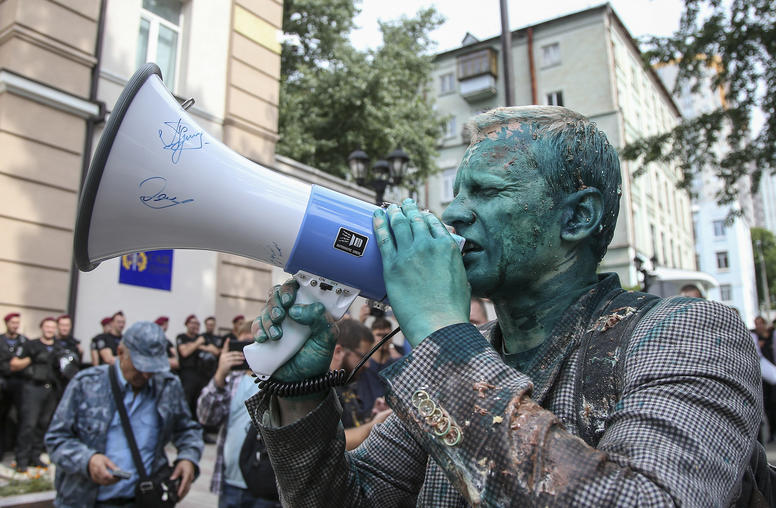
Ukrainian Activism for Transparency and Accountability: Two Steps Forward, One Step Back
In the wake of the Euromaidan protests that toppled the government of Viktor Yanukovych in 2014, Ukrainian activists and civil society organizations have pressed hard for anti-corruption reforms and greater openness and transparency in the public sector. Five years later, however, corruption remains a fixture of civic life—and a majority of Ukrainians believe the fight against corruption has been a failure. This new report reviews the changes that have taken place in the anti-corruption movement since the Euromaidan and identifies practical actions the international community can take to support reform efforts in Ukraine.
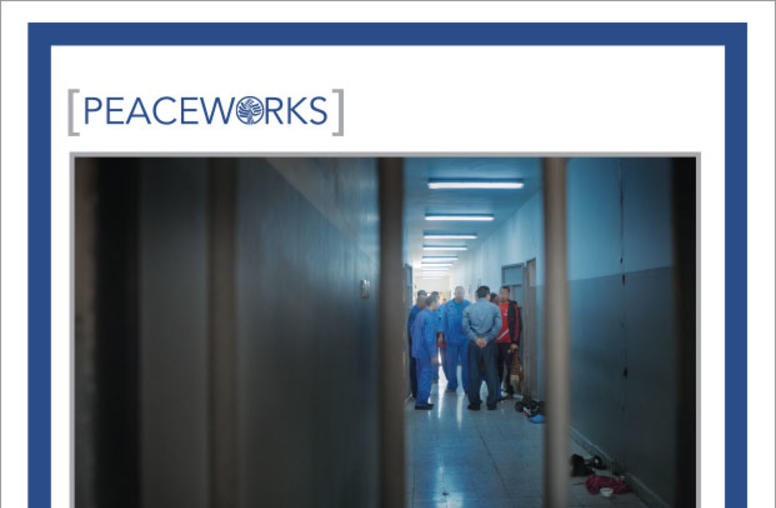
Prisons and Detention in Libya (Arabic)
التقرير الماثل هو عصارة استبيانين أُجْرِيا في ليبيا خلال عامي 2014 و2016. والغاية منه سَبْرُ أغوار القطاع الديني في ليبيا ورصد تأثيره في الحكم والمجتمع. وقد استندت عملية استخلاص نتائج هذا التقرير إلى

Systems Thinking for Peacebuilding and Rule of Law (French)
Notre approche traditionnelle de la consolidation de la paix et de l’État de droit semble solide : des objectifs ambitieux, une injection de ressources, des équipes d’experts travaillant intensément. Pourtant nous semblons rarement aboutir à des réformes véritablement fructueuses et durables. Pourquoi nous enlisons-nous ? Une des réponses possibles réside dans notre façon de percevoir les systèmes avec lesquels nous travaillons. Nous avons tendance à traiter de nombreux systèmes de consolidation de la paix et de l’État de droit comme s’ils étaient des systèmes d’horloge, c’est-à-dire ordonnés, réguliers et prévisibles. En réalité, les environnements dans lesquels nous travaillons sont plutôt des systèmes de type nuage,en cela qu’ils sont désordonnés, irréguliers et imprévisibles.
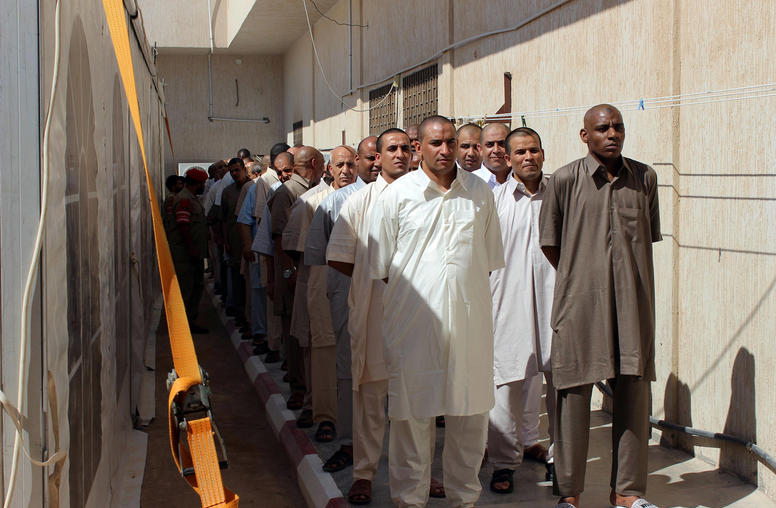
Managing the Secure Release of Sensitive Detainees in Libya
During the 2011 uprising that ousted dictator Muammar Gadhafi, revolutionary fighters in Libya rounded up large numbers of Gadhafi loyalists and detained them in prison facilities and makeshift detention centers around the country. The release of such high-profile detainees, either after they have been acquitted of crimes or served their sentences, is a sensitive political issue. This report examines the domestic and international laws and standards governing the secure release of these detainees and provides a number of policy ideas for addressing the shortcomings of Libya’s current release procedures.
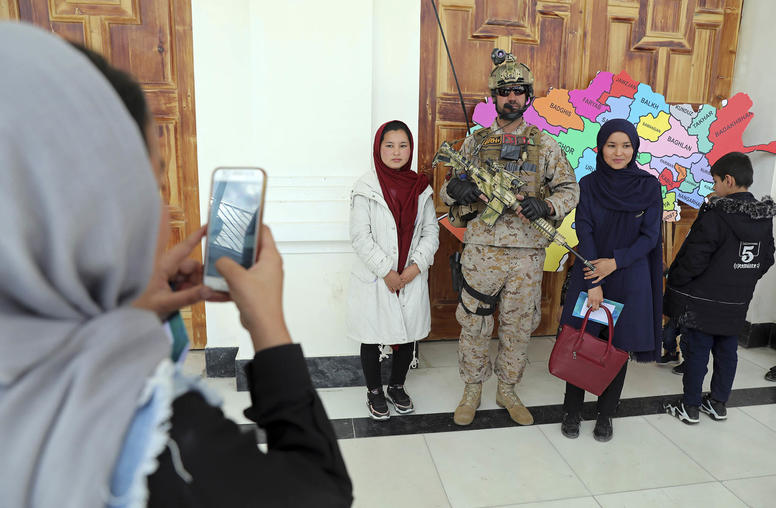
“No Going Backward”: Afghanistan’s Post–Peace Accord Security Sector
Failure to plan realistically for needed changes in Afghanistan’s security sector following a peace settlement—and failure to start phasing in changes now—will lead to post-settlement instability. This report examines the particular challenges Afghanistan will face, with examples from the climate following peace settlements in other parts of the world offering insight into what may occur and possibilities for response.
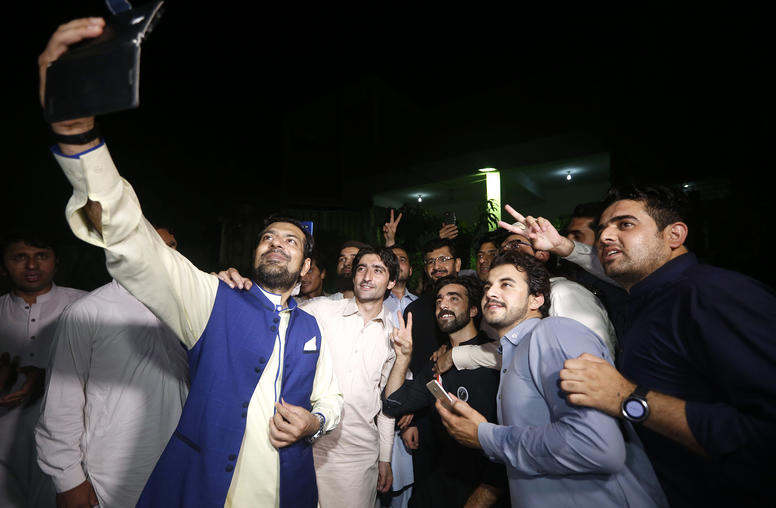
Extending Constitutional Rights to Pakistan’s Tribal Areas
When Pakistan’s Federally Administered Tribal Areas were officially merged into Khyber Pakhtunkhwa Province in May 2018, the five million residents of the former tribal areas acquired the same constitutional rights and protections—including access to a formal judicial system—as Pakistan’s other citizens. This report, based on field research carried out by the authors, explores the status of the formal justice system’s expansion, finding both positive trends and severe administrative and capacity challenges, and offers recommendations to address these issues.